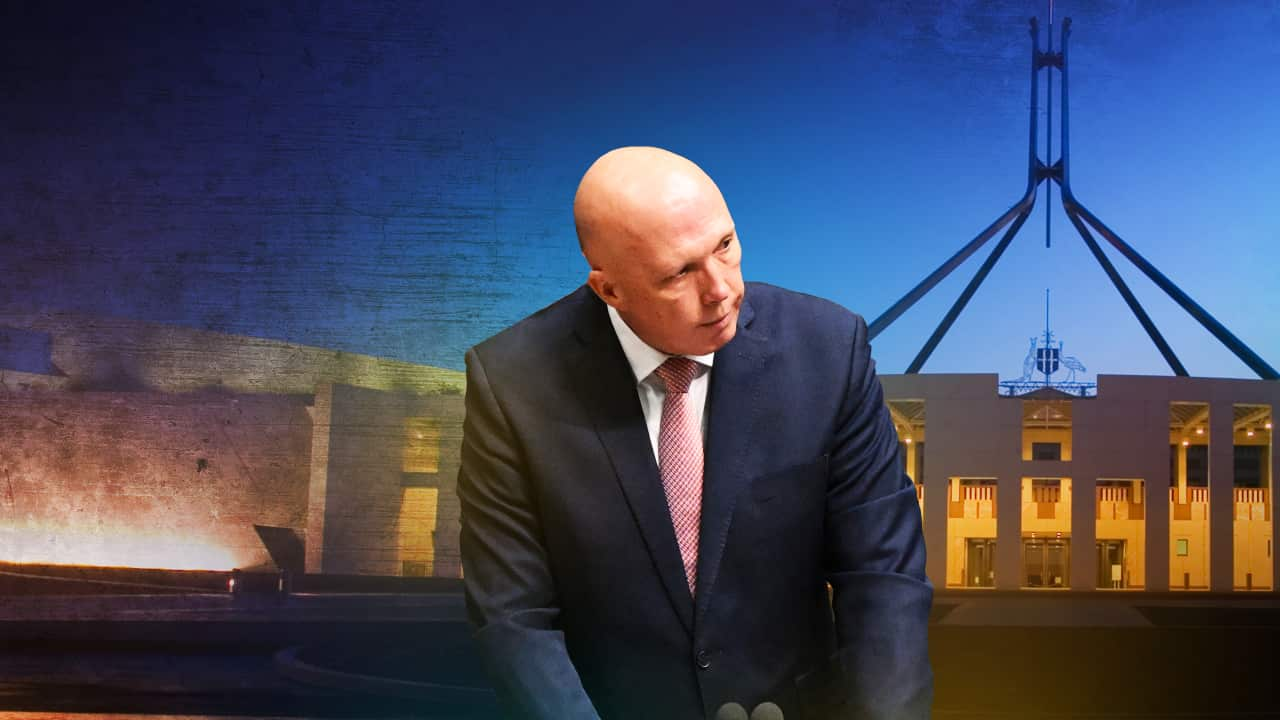KEY POINTS:
- Some Liberal backbenchers will campaign for the Voice to Parliament, despite their party's stance.
- Party rules bind shadow cabinet members to campaign against the Voice.
- But some are likely to avoid campaigning too publicly after a conscience vote was rejected.
The Liberals' decision to reject a conscience vote on the Voice to Parliament bucked recent trends, but not all its MPs are obliged to toe the line.
quickly prompted one frontbench resignation, while the first Aboriginal person to hold its Indigenous affairs portfolio immediately .
Former prime minister John Howard allowed MPs to vote their conscience at the last referendum, the 1999 republic vote, an approach replicated nearly a decade later during the 2017 same-sex marriage debate.
But party rules mean even a hard No stance can't prevent backbenchers from speaking their mind this time around.
And not every frontbencher will be campaigning against the Voice with the same gusto.
Here's where they stand.
Julian Leeser

Julian Leeser quit the shadow cabinet to campaign for the Voice. Source: AAP / Bianca De Marchi
Mr Leeser resigned as the party's Indigenous Australians spokesperson in order , something he could not do from the shadow cabinet.
He insists the decision was made amicably with Peter Dutton, who he says retains his support as Opposition leader.
“I'm resigning without rancour, but on a point of principle. What I want to be able to say to my children in the future is: your father stood up for something he believes in,” he said.
But he's still unconvinced by Labor's model for the referendum, and wants the Voice's ability to advise parliament and the executive government scrapped.
Simon Birmingham

Simon Birmingham spoke positively about a conscience vote, but has remained in shadow cabinet. Source: AAP
Because he's a frontbencher, the party's most senior moderate is bound by party lines. He has no intention of quitting the shadow cabinet "at this stage", so his workaround is to simply not campaign openly for either side.
Asked whether he will follow his leader in campaigning against the Voice, he told Sky News: "That's ... not my intention".
But he wouldn't reveal which way he'd personally vote at the ballot box.
Paul Fletcher

Paul Fletcher says he supports constitutional recognition. Source: AAP
"What I support is constitutional recognition of Indigenous Australians. That's what the Liberal Party supports," he told the ABC's Q + A program.
After an audience member interjected - "So you're voting yes, then?" - Mr Fletcher reiterated the party's official stance.
Karen Andrews

Karen Andrews has left the frontbench, but says it's not related to the Voice. Source: AAP
But like Senator Birmingham, she's initially said she would stay in the shadow cabinet without openly campaigning for its position.
"I am unlikely to go out with the word No emblazoned on a shirt, to be advocating in that way,” she told ABC News last month.
Ms Andrews has , and will leave parliament at the next election. But she's reiterated her concerns over the Voice, and insists the decision wasn't related to the referendum.
Bridget Archer

Bridget Archer, who has a history of bucking her party's line, is campaigning for the Voice. Source: AAP / Lukas Coch
Immediately after the party's position was announced, she confirmed she'll remain in the party but campaign in favour of the Voice. But she accepts that's a minority position among her fellow Liberals.
“I'm not really surprised [by the decision], but I am disappointed. I think that this has been some time in the making,” she said.
Andrew Bragg

Andrew Bragg says the Voice shouldn't be opposed on 'process grounds'. Source: SBS News / SBS News
Just hours after Mr Leeser's resignation, Senator Bragg reiterated his hope that the referendum will succeed.
"This referendum is too important to play politics ... I want [it] to succeed and I believe a Yes vote is now more likely because of Julian's conviction," he said.
Russell Broadbent
The backbench MP will be campaigning for the Voice.
Mr Broadbent has written that the Uluru Statement from the Heart, which calls for a Voice to Parliament, should be "embraced in its fullness".
"Anything less will impoverish that future. I am committed to doing all I can to see the Statement adopted. Whatever it takes," he said in February.










